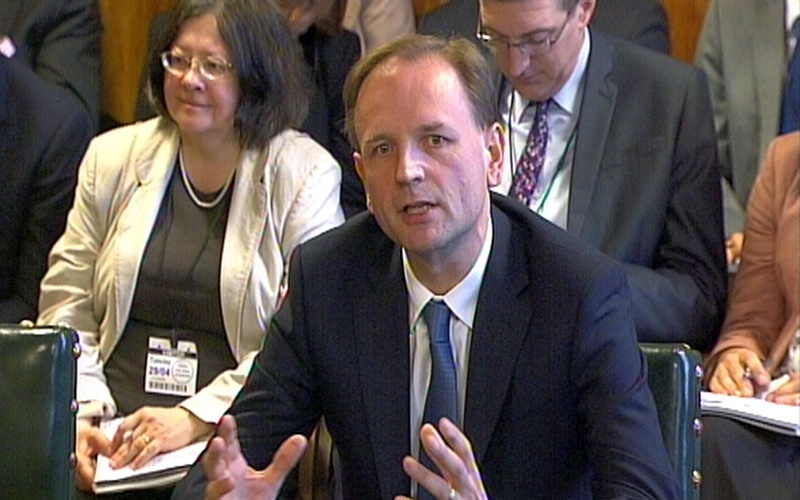18.03.15
Building trust in the NHS: the role of the centre in facilitating change
How can politicians, where the buck very publicly stops, be confident of what’s going on in the NHS? Politicians of all parties will be reticent to give more to the service – whether money, media air cover or autonomy – when they aren’t sure what they’d get in return. Ferelith Gaze, head of public affairs at NHS Providers, discusses the issues.
The NHS has trust issues.
To gain control over this dilemma, too often, politicians and policymakers have set out what they expect, and how much they’re going to give to achieve that. Then local commissioners and providers must work out how to deliver it, irrespective of their area’s particular needs and circumstances.
This can fall foul, most recently when otherwise welcome additional funding to reduce elective waiting lists didn’t take account of what could realistically be achieved in the time given. Likewise, it happens when policy drivers are not properly aligned – as seen, for example, in some trusts where the CQC’s requirement to increase staffing numbers in order to safeguard care has contributed to increasing financial difficulties and, in some instances, led to investigation by Monitor.
This approach of ‘expect and deliver’ has also perpetuated the historical tendency of the NHS, though a diverse and dispersed system, to look to the centre for direction.
Who’s in charge?
Of course responsibility for delivering care lies locally with the boards of NHS commissioners and providers. But at the same time, that instinct to refer to the centre makes this question inevitable: who is in charge of the NHS? It’s a question which has hung over the NHS since the Health and Social Care Act 2012, and it’s one which will continue to be raised long after the votes have been counted in 50 days’ time.
That shorthand question really asks, who sets the vision and makes it happen, and who do we hold accountable for the results? A certain alchemy is at work in the answer.
Simon Stevens is routinely described in the media as chief executive of the NHS, and not simply of the national commissioner, NHS England. He is at the centre of the service’s strategic work, is often its public spokesman and is generally accepted as the first amongst equals of the NHS’s many arm’s length bodies.

Yet ultimate accountability – if not operational control – lies with the secretary of state. The 2012 Act intended to put some distance between politics and the service, but with the office retaining final accountability, that distance can only stretch so far. The balance struck by Jeremy Hunt is to maintain the Department of Health as the sponsor of the NHS, while positioning himself as the champion of the patient. Hence he has defined the basis for his accountability and the mandate he gives NHS England.
Is this a sustainable combination though? Of the two, Simon Stevens is most strongly associated with building new care models. As with any change, this entails risk. But the secretary of state is expected to keep the show on the road and to keep patients safe in the services they have always known.
This has all reinforced, rather than relieved, the political impulse – shared across the spectrum – to argue that the NHS is (or was) better than under the opposing party. Not an unusual political tactic, but one which profoundly affects the workings of the NHS, and which locks the system in an impossible position.
It puts a significant emphasis on ‘more of the same’. At worst, this can mean frontline services lack the confidence to say what isn’t working and how long it will take to resolve. It can mean contradictory regulation, with expectations of keeping today’s services upright in seeming perpetuity as much as acknowledging the need for evolution. It means performance targets and reporting requirements can become an industry in themselves, divorced from operational context, clinical judgement and, above all, from the patient outcomes they were intended to secure. All this is rounded off by the media, which has yet to find the narrative middle ground which links today’s service pressures with the coming service transformation.
From imposition to facilitation
But this increasingly makes little sense. Today’s NHS must care for 60 million different sets of needs, which can both regularly morph and persist year upon year.
Politicians and policymakers need to recognise that frontline organisations are the only ones that can know the quality and configuration of their services now, where they need to be in the future, and what they need to get there. It is local NHS commissioners and providers who must work together, and who know the sticking points and the opportunities. All of which frontline knowledge is essential to rebuilding services around 21st century patient needs.
The centre can no longer expect to impose its will; it needs instead to become a facilitator of locally led innovation and change.
This is starting to happen. Manchester shines a light on the role that local leadership might play and its progress will be closely followed by the service. Meanwhile, the process for selecting and developing the vanguard sites has impressively balanced national momentum with local determination. It sets a positive example in developing NHS culture, emphasising change led by the frontline, the need to understand the specific needs of local areas, and sharing learning.

(Manchester. Photo: Sue Langford)
These are the kinds of principled investment that the NHS needs. That is, where the government works with the NHS to establish what can be done, what funding would be required, and what timescales would be realistic. Where commissioning decisions have a strong clinical voice and where good governance provides assurance that care will be consistently safe. With NHS providers and partners having the autonomy to work together and invest appropriately, and being held organisationally accountable – by their local communities, as well as by regulators, commissioners, and Parliament – for the results.
National frameworks enabling local change
Where else can this quiet revolution be applied?
The public expects a national service, locally delivered. So there is no doubt that central policymakers will continue to play a welcome role in supporting and shaping the direction of the NHS, setting national standards and helping to explain national trends.
Commissioning is one area. The partnership between commissioners and providers is fundamental to today’s NHS, but received little attention in the Five Year Forward View. Clinical commissioning groups (CCGs) can add great value to local health services through strategic design, joint working and focus on quality improvement. But they do not yet always exercise the full breadth of their rights and responsibilities, and neither are they held fully accountable for doing so.
One way of addressing this is to reposition the place of commissioning. CCGs need to remain responsible and accountable for final decisions, but commissioning itself should be seen as a process carried out through constant dialogue within the whole local health and social care system.
Meanwhile, in regulation, a balance has yet to be struck in the rate, cost and burden of intervention. Regulators can sanction and check whether required improvements have been made, but they cannot directly improve quality of care on the ground. It is NHS providers that must use their clinical and organisational judgement to continuously improve patient care, identifying and responding to local needs while meeting national standards.
Hence, on the one hand, NHS providers themselves need to ensure they are fulfilling their responsibility for sector improvement. And on the other, regulators need to align behind the objective of creating the conditions for NHS providers and their partners to drive locally appropriate service development.
Pay, terms and conditions is another, far thornier, set of issues. A significant portion of the £20bn in savings made by the NHS between 2010 and 2014 came from pay and hiring freezes. But following the recommendations of the Francis and Keogh reviews, NHS providers had to spend a partly unfunded £1.2bn on increasing nurse numbers. Meanwhile, negotiations over consultant and junior doctors’ contracts have stalled, and Agenda for Change continues with only minor changes, despite the context in which they were originally negotiated shifting considerably.

The government has tried to distance itself and depoliticise the annual question of automatic pay increments through the pay review bodies, but it retains power over the final decision and so this approach can only go so far. Resolving this is likely to mean a fundamental review, perhaps driven not politically, but within the service itself with government support. In this way, we can perhaps avoid negotiations starting from the current set of conditions and suffering from a case of “more of the same”, and instead find an opportunity to do better by everyone – staff, patients and taxpayers alike.
A vision and a framework, not an instruction manual
Public debate on the future of the NHS needs to be both more open and more ambitious. A debate where politicians can say that the NHS is doing okay, but to be truly great, we need a new way of working. That it’s not about reporting and administrative structures. It is about having high expectations and enabling high performance – the latter based on agreed national standards and delivered by local leadership to meet local needs.
It’s about leading by example, and encouraging the culture and behaviours needed for confident local leadership. It’s about matching support and resources to the vision. It’s about asking constructive questions and sharing expertise.
Such a change in the political culture would filter through the system, better enabling organisational honesty about where improvements can be made and what help is needed. The shift in the relationship – from imposition to facilitation – would better foster the strong local leadership on which high performance and improvement depend.
The centre is still defining its role since the upheaval of the 2012 Act. It will continue to do so after the election, regardless of the new government’s composition. And as it does so, there appears to be a growing role for active facilitation by the centre of solutions principally developed by the frontline. Not an imposition of ‘do this’, and not an arm’s length order of ‘come back with options’. But truly collaborative facilitation, one of: ‘We’re listening – what can we do to help?’